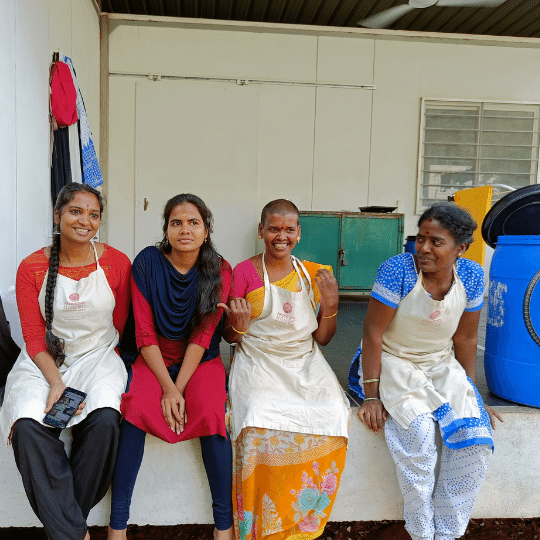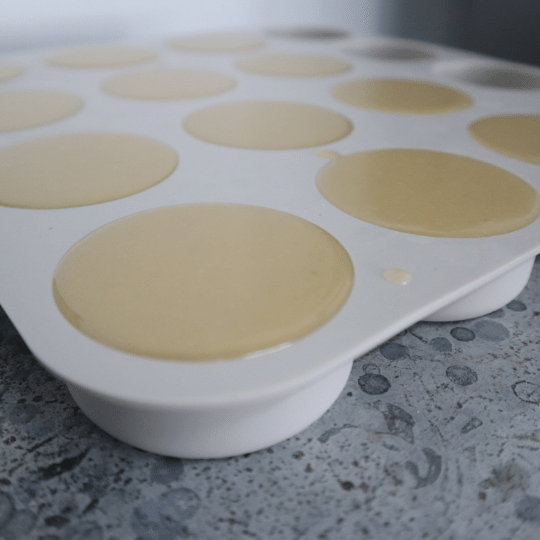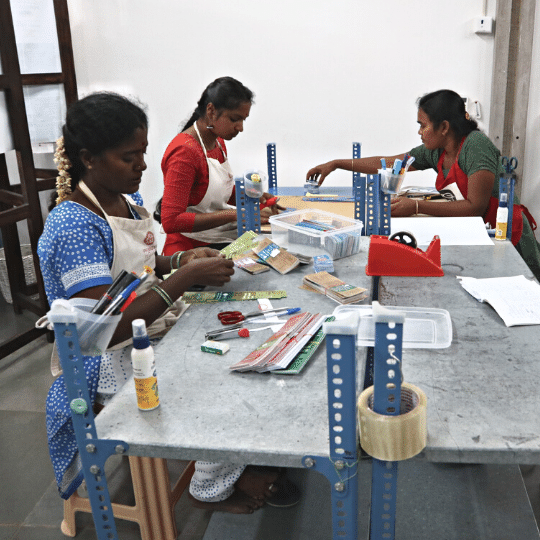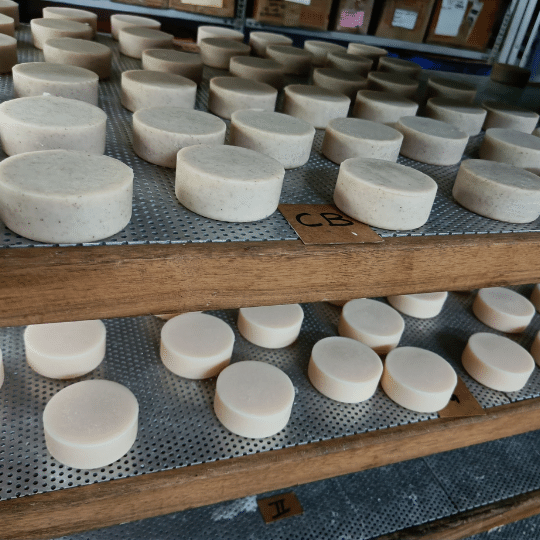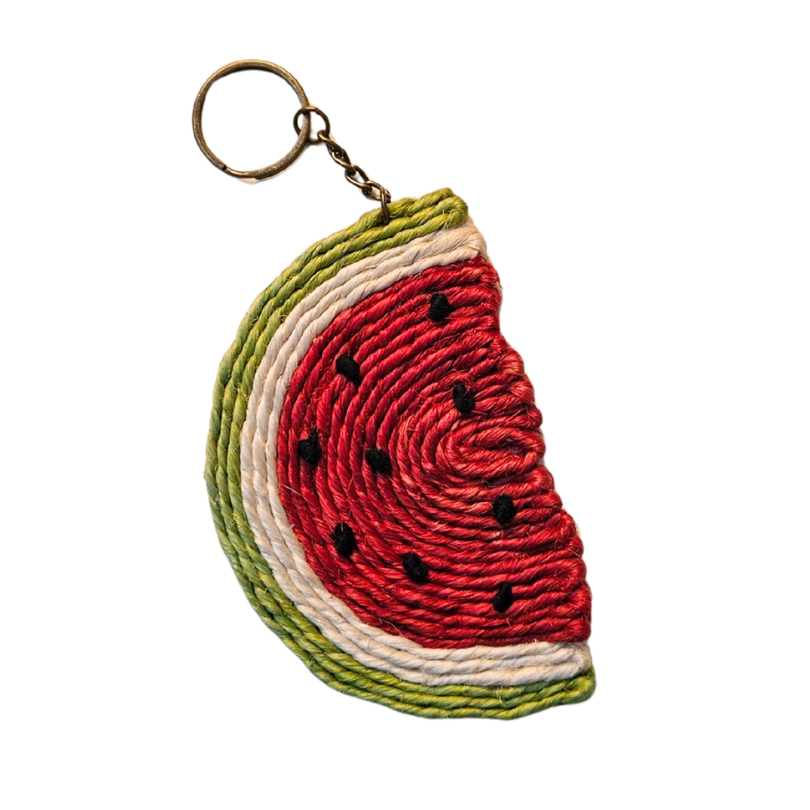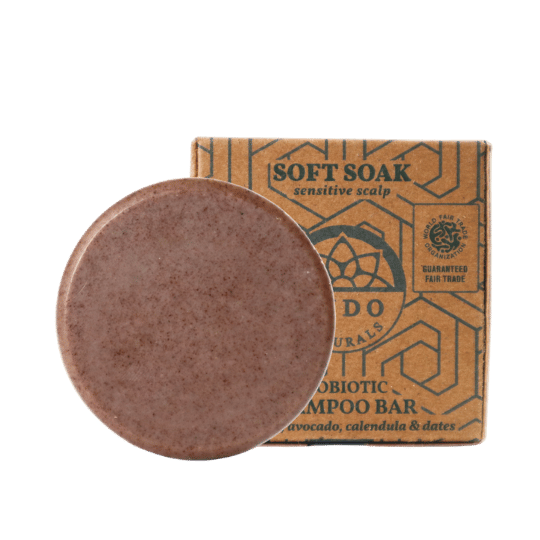The Story of our Soap Bars
- Indo Naturals

- Aug 10, 2021
- 5 min read
Updated: Oct 16, 2024
Soap bars were the first products we developed. And there are good reasons for that...
Liquid soap in plastic bottles is cheating you. It contains up to 90% water and is filled with synthetic chemicals such as perfumes and parabens to keep the water from developing unwanted bacteria. This is extremely cheap to produce, yet it can have high costs on the environment and your body. Furthermore, the plastic bottles that liquid soap comes in are used only a few months while they actually last for up to 400 years.
Natural soap bars are made with oils, lye, botanicals, and other plant ingredients. Raw materials which are abundant in rural India. Developing our exciting range of soap bars for everyday use was therefore a great start for us. Our bars are made with probiotics, natural oils, herbs, and other botanicals. They are completely free from plastic and made to last for a long time. Probiotics are added to each soap giving them unique benefits to both the body and the environment. In addition, they are made ethically in close proximity to the main raw materials. This means fresher ingredients and fewer middlemen in the process - providing you with a quality soap bar for a good price. In addition, since soap bars are super concentrated soap without water, one soap bar equals about three plastic bottles of liquid soap.
Developing & Formulating
Each bar has been developed in Norway and tested by dozens of focus group participants to find the best combinations of oils and herbs for everyday use. The ingredients are carefully selected for their benefits to skin, hair, and scalp alongside their aromatic qualities.
We believe de-stressing, and taking care of oneself is just as important for the shower routine as the hygiene part, and we wanted to make soap bars that each provide a specific function in the everyday life, either by destressing, refreshing, or giving you a soap to travel with, detoxing, or helping you breathe and get more mindful.
After 3 rounds of testing the many soap bars we formulated, we finally found 7 formulations that were loved by our focus groups. It was a long and thorough process, but we could not be happier with the result.
The next step was making the packaging. This ended up being a battle of its own. We wanted soap boxes made with certified recycled paper, and without any plastic (not even glue). Preferably they should also be ethically made. After some time we finally found partners with recycled paper and good working conditions. We designed a folding technique where no glue was needed and got the boxes printed. The design is made using symbolic geometric patterns.
Ingredients
When choosing raw materials we look into various factors to evaluate the social and environmental impact of the material or ingredient. This includes proximity to the production, organic farming, independent farmers and rural development, area- and water use, renewability and speed of growth including soil degradation, natural abundance and impact on wildlife and eco-system, transparency, freshness, and quality. Based on this we do our best to choose the most sustainable main raw materials we can find.
The soap bars are made with coconut oil as the base oil. This creates a cleaning and foaming soap bar. The coconut oil is harvested only about 20 km from the production itself. Traditional means are used to harvest the oil, and no synthetic pesticides are used. Instead, neem oil and garlic are used to keep the coconut bugs away. While the coconut oil makes soap more cleansing, the probiotics help balance this out, making the soap bars milder to the skin and hair.
Probiotics are unique ingredients added to our soap bars. Two strains of microbes are added to the soaps to provide a variety of qualities for body, hair, and even the environment. It is well known that our bodies have more microbes/bacteria, on and in them, than cells, and this is vital for our health. By adding positive microbes in the form of probiotics to our skin and scalp, a healthy flora is created on our outsides. This helps fend off unwanted bacteria and creates a healthy environment on our skin. Read more about the benefits of probiotics, her.
Next to the benefit to the body and head, the probiotics actually help clean the run-off water from our drain. The positive bacterias have the unique ability to consume potentially harmful chemicals and bacteria in the waterways. This way the soaps help clean the waters and oceans.
Most of the other ingredients added, come from either the local area or other places in India. Having traceability to ingredients such as essential oils is very difficult, but at least we know about the origin of the ingredients of risk, such as sandalwood. Our sandalwood oil is made using the natural reconstruction method. This means that the components making up other natural essential oils are separated from the oil before they are mixed back together in the formulation of sandalwood oil. Meaning that no sandalwood trees are cut down to make the oil.
Making
The soap bars are made in Auroville by our partner MGEcoDuties. We discovered MGEcoDuties inside an inspiring town working world peace, sustainability, and consciousness - called Auroville.
Auroville was established in 1968 on a hill overlooking the Bay of Bengal. Now it has an important impact on the area's rural population and is supported by UNESCO, UN, and EU for its goal to show the possibility of global unity. Read more about Auroville here.
MGEcoDuties focus on ecologically responsible wellness and hygiene products and are at the forefront of probiotics science. By adding probiotics to the products they benefit both the user and the environment. MGE is one of the commercial chapters of Auroville, helping keep the town alive and developing.
The probiotic ingredients are based on research by founders Margarita and Guidelma and are some of the world’s first probiotic soaps. The first soaps they created were actually made with a different intention than giving you a pleasant shower experience. Margarita and Guidelma wanted to clean polluted waters by adding microbes that eat up pollutants in the waterways.
MGEcoDuties' production is also focused on minimizing energy use and water use. That's why the soaps are made with cold process soap making.
MGEcoduties employ and provide livelihoods to about 20 people from the surrounding villages. Moreover, 33 % of the profit goes back to the society of Auroville through the Kattida Kalai Trust - one of several Auroville trusts. This way, it supports the expansion of Auroville through sustainable infrastructure, as well as the rural development of nearby villages through education, women's empowerment, health services, employment, and more.
This makes our soaps may be the most impactful wellness product you can get, while at the same time providing you with the many benefits of natural probiotic care.
Impact
ENVIRONMENTAL IMPACT
The probiotics used are effective cleaning agents for removing unwanted chemicals and bacteria and contribute to cleaning waterways as they washed down the drain. Additionally, the producers partner with large and small corporations in their own communities to help reduce the use of harsh chemicals and promote the use of probiotics to improve water quality for all. In addition, the producer strives to reduce waste by focusing on using compostable materials and using local recycling facilities.

UN Sustainable Development Goal
By utilizing probiotics to clean waterways and replace potentially harmful chemicals this producer is working towards target 6.3 ""improve water quality by reducing pollution."
SOCIAL IMPACT
This production team directly help provide employment opportunities to people from the surrounding villages. The producer is also linked to various projects promoting education in sustainable and ecological practices, increased effectiveness of organic farming for the benefit of the smaller farmers, and more. Many of the ingredients are sourced from local and regional independent farmers.

UN Sustainable Development Goal
By being part of a planned community designed to promote sustainable communities this organization specifically contributes to target 11.3 "enhance inclusive and sustainable urbanization and capacity for participatory integrated and sustainable human settlement planning and management."
Livelihoods Impacted: 20 people, mainly women from the local villages.





